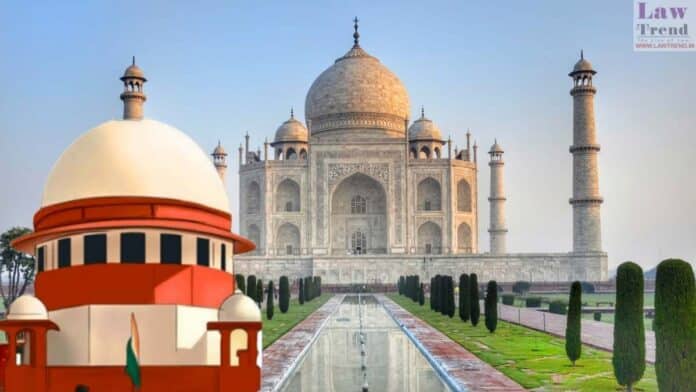The Supreme Court on Friday dismissed an appeal to designate Agra as a “heritage city,” citing a lack of evidence that such a status would benefit the city. The decision was delivered by a bench comprising Justices Abhay S Oka and Ujjal Bhuyan, who were addressing a longstanding 1984 Public Interest Litigation (PIL) concerned with the conservation of the Taj Mahal and its surroundings.
During the proceedings, the bench questioned the tangible benefits of declaring Agra a heritage city, probing the legal provisions that would support such a status. The counsel advocating for the declaration argued that recognizing Agra as a heritage city would bolster tourism, generate jobs, and aid in the preservation of its numerous historical sites, noting that the city’s history spans over a millennium.
However, Justice Oka expressed skepticism about the effectiveness of such declarations, drawing parallels to the limited impact observed in cities labeled as “smart cities.” “Similarly, how does it help Agra city by declaring it a heritage city? Does Agra become cleaner by the declaration? If it does not help, then it will be an exercise in futility,” remarked Justice Oka.
The court emphasized its ongoing commitment to the protection of the Taj Mahal and the maintenance of the Taj Trapezium Zone (TTZ)—a designated area spread across multiple districts intended to safeguard the iconic monument from pollution and other threats. The justices reiterated the court’s role in overseeing developments within this zone to ensure the longevity of the UNESCO World Heritage Site, the construction of which was completed in 1643.




